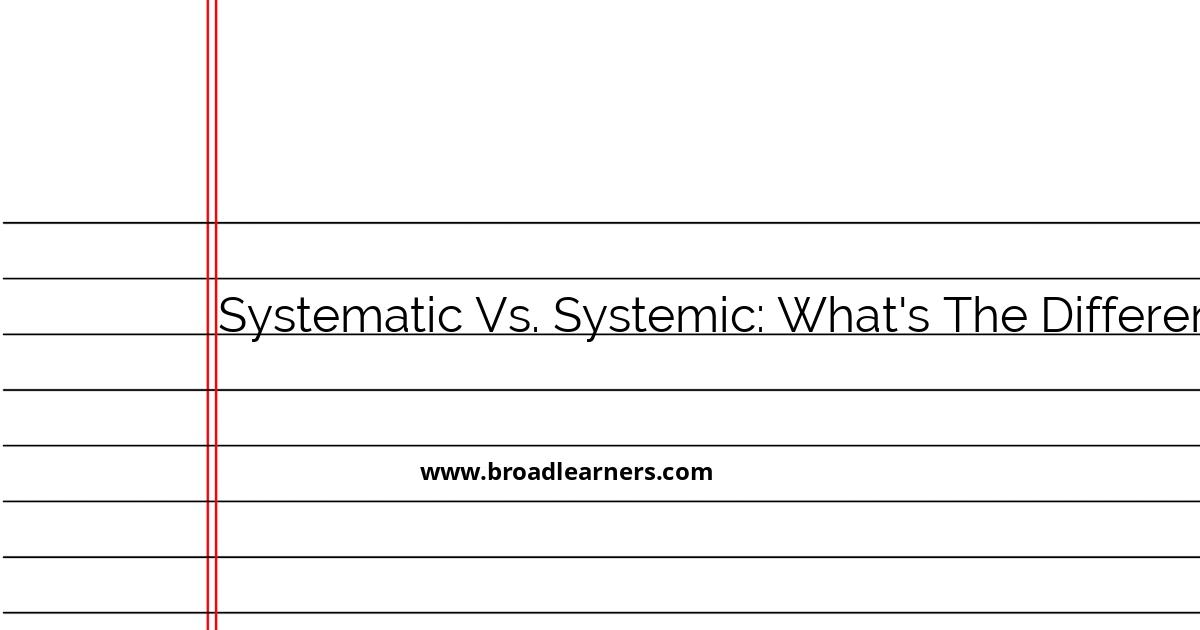The English language contains numerous words that sound similar but have distinct meanings. Two such terms that often cause confusion are "systematic" and "systemic." Understanding the nuances between these words is crucial for effective communication, particularly in professional and academic contexts. This article provides a comprehensive explanation of the differences between "systematic" and "systemic," complete with examples to enhance clarity.
Definitions and Differences:
- Systematic
-
The adjective "systematic" describes something that is conducted or carried out in a methodical, organized manner. It implies a structured approach that is deliberate and follows a specific plan or system. Systematic methods are often implemented to ensure consistency and thoroughness in tasks or analyses.
- Systemic
-
"Systemic," on the other hand, generally refers to something that affects the entirety of a system, whether it be a biological entity, an organization, or any established structure. When a problem is described as systemic, it means that it permeates or influences the whole system rather than being isolated to a particular segment or aspect.
Detailed Explanations with Examples:
Let's explore each term with detailed examples to further illustrate their differences:
Systematic
A systematic approach involves using an orderly, planned process. It can be applied to numerous contexts, from problem-solving to research methodologies.
Example:
"The research team adopted a systematic procedure to ensure that every possible variable was considered in their study."
Explanation: In this case, "systematic" refers to a step-by-step and organized approach to conducting research, aimed at minimizing errors and maximizing reliability.
Systemic
When discussing issues that are widespread within a system, "systemic" is the preferred term. This could relate to issues within healthcare, business operations, or social systems.
Example:
"The organization faced systemic challenges due to outdated policies affecting all departments."
Explanation: Here, "systemic" indicates that the challenges are inherent throughout the entire organization, not limited to specific areas or individuals.
Summary:
- Use "systematic" when referring to an organized, methodical approach or process.
- Use "systemic" when discussing something that affects an entire system or is pervasive within it.
Understanding the distinction between "systematic" and "systemic" is vital for effective communication, especially when conveying precise information in fields such as research, healthcare, and organizational management.

Did I miss anything? Respond below